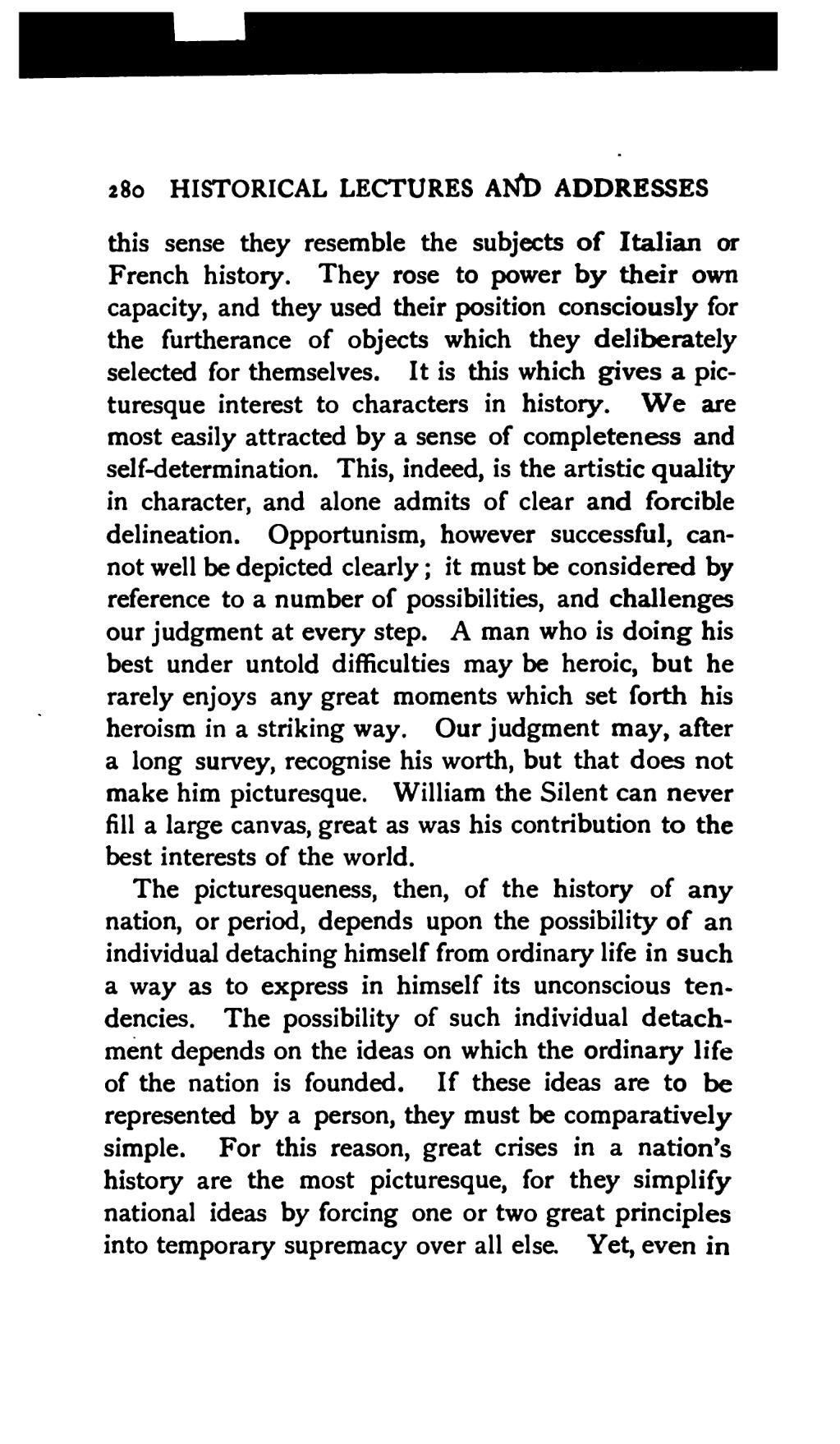this sense they resemble the subjects of Italian or French history. They rose to power by their own capacity, and they used their position consciously for the furtherance of objects which they deliberately selected for themselves. It is this which gives a picturesque interest to characters in history. We are most easily attracted by a sense of completeness and self-determination. This, indeed, is the artistic quality in character, and alone admits of clear and forcible delineation. Opportunism, however successful, cannot well be depicted clearly; it must be considered by reference to a number of possibilities, and challenges our judgment at every step. A man who is doing his best under untold difficulties may be heroic, but he rarely enjoys any great moments which set forth his heroism in a striking way. Our judgment may, after a long survey, recognise his worth, but that does not make him picturesque. William the Silent can never fill a large canvas, great as was his contribution to the best interests of the world.
The picturesqueness, then, of the history of any nation, or period, depends upon the possibility of an individual detaching himself from ordinary life in such a way as to express in himself its unconscious tendencies. The possibility of such individual detachment depends on the ideas on which the ordinary life of the nation is founded. If these ideas are to be represented by a person, they must be comparatively simple. For this reason, great crises in a nation's history are the most picturesque, for they simplify national ideas by forcing one or two great principles into temporary supremacy over all else. Yet, even in
